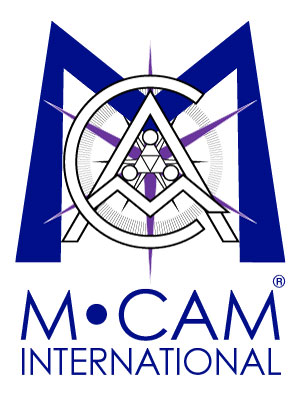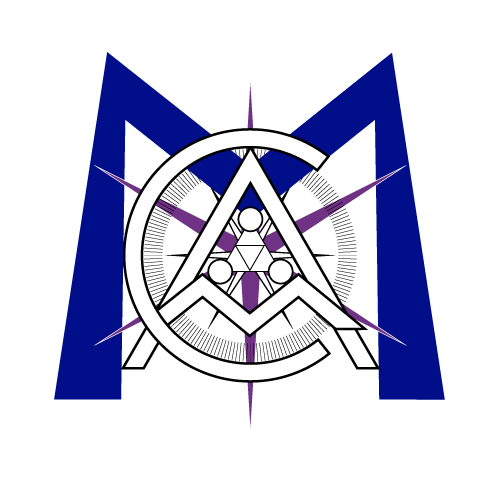PUBPAT News: Consumer Groups Support Stem Cell Patent Rejection
Date: Mon, 2007-07-02
Dr. David E. Martin July 2, 2007
CONSUMER GROUPS FILE COMMENTS SUPPORTING U.S. PATENT OFFICE’S STEM CELL PATENT REJECTION: University of Wisconsin Affiliate Has Narrowed Claims; Four Leading Scientists Agree Work Was “Obvious”.
Santa Monica, CA — July 2, 2007 — Two consumer groups have filed comments with the U.S. Patent and Trademark Office supporting its rejection of human embryonic stem cell patent claims asserted by the Wisconsin Alumni Research Foundation (WARF) because the claimed advances are obvious in the light of previous stem cell research, the groups said today.
Last July the groups, the Foundation for Taxpayer and Consumer Rights (FTCR) and the Public Patent Foundation (PUBPAT) challenged the patents because they are hindering stem cell research.
Four internationally known stem cell scientists, Dr. Douglas Melton of Harvard University, Dr. Alan Trounson of Monash University in Australia, Dr. Chad Cowan of Harvard University and Dr. Jeanne Loring of the Burnham Institute for Medical Research, filed declarations supporting the consumer groups and the PTO’s earlier finding that the work done by Dr. James Thomson does not deserve a patent.
In papers filed on Friday, FTCR and PUBPAT said that although WARF has narrowed its claims and made several arguments in its response to the PTO “none of the Patent Owners’ arguments have sufficient merit to overcome the rejections.”
“I very much believe Dr. Thomson deserves the scientific and public recognition he has received,” Dr. Melton’s declaration said. “However, he deserves that recognition because he undertook the arduous and timely task of getting fresh and high quality embryos to use as starting material for his work, and sufficient funding for such research, not because he did anything that was inventive… His perseverance and commitment deserve recognition and accolades. But I believe that had any other stem cell scientist been given the same starting material and financial support, they could have made the same accomplishment, because the science required to isolate and maintain human embryonic stem cells was obvious.”
WARF holds three stem cell patents, numbers ‘780, ‘806 and ‘913, based on work done by Thomson. The PTO granted the requests for re-examination and in March rejected all the claims of all three patents. WARF had the opportunity to respond to all three rejections. The rules applicable to the ‘913 case under a so called “inter partes” re-examination allow the challengers to comment on WARF’s response in that proceeding.
The two earlier patents are undergoing “/ex parte” /re-examination and those rules do not allow formal comment from FTCR and PUBPAT. Nonetheless, the case made by FTCR and PUBPAT in the ‘913 case is relevant to the other two.
“What Dr. Thomson did was admirable,” said John M. Simpson FTCR Stem Cell Project Director. “It just isn’t patentable.”
WARF narrowed its claims in its response to the PTO finding, seeking to patent only stem cells derived from “pre-implantation embryos.” This means that stem cells derived by other methods — such as therapeutic cloning — may not be covered. In January WARF eased its licensing requirements on stem cells, a move many observers believed was an effort to blunt widespread criticism of its aggressive patent policy from the stem cell research community.
Dan Ravicher, executive director of PUBPAT, said that while the challenge has already improved the situation for researchers, the patents are still not justified. In the ‘913 case the patent examiner cited five grounds for rejecting WARF’s claim, basing the decision on earlier publications and patents by Robertson, Piedrahita, Williams and Hogan. (Read the PTO decision here: http://www.consumerwatchdog.org/resources/913rejected.pdf). In their formal comments FTCR and PUBPAT agreed with the examiner and rebutted WARF’s arguments making these five essential points:
Read FTCR and PUBPAT’s comments filed with the PTO here: http://www.consumerwatchdog.org/resources/913Comments.pdf.
In his declaration Dr. Trounson speaks about the relevance of isolating mouse embryonic stem cells to isolating human embryonic stem cells: “In January, 1995, it was obvious to me and others in the art of ES cell derivation that the process taught by Robertson ’83 and Robertson ’87 for isolating mouse stem ES cells could be used to isolate human ES cells. The motivation to do so came at least from the general understanding in the field of the applicability of mouse studies to human research.”
Dr. Cowan’s and Dr. Loring’s declarations agree that the patent’s claims were obvious and apparent to anyone working in the field at the time.
Dr. Loring, who has long supported the patent challenges added: “Dr. Thomson is a valued colleague in the stem cell scientific community, and the challenge to his patents is not personal. His work was impressive, and contributed greatly to the field, but it wasn’t patentable.”
Dr. Trounson’s declaration also discusses work by Dr. Ariff Bongso, a stem cell scientist in Singapore, who successfully isolated human ES cells, but did not maintain the cultures for a long period of time. Dr. Bongso did not use feeder layers, but tried LIF to culture the cells. Dr. Thomson used feeder cells. Dr. Trounson’s declaration notes: “Two of the authors of Bongso et al. and I recognized by 1995 that by using feeder layers with or without LIF would work to successfully maintain isolated human ES cells over an extended period of time. We made this recognition well before Dr. Thomson published the results of his work, as it was obvious to us at the time that, had Bongso et al. simply not dispensed with the feeder layer in the passaging step, they would have successfully developed the claimed invention. A successful result of such an obvious modification was entirely predictable to us.”
Read the Dr. Melton’s declaration here: http://www.consumerwatchdog.org/resources/MeltonDecl.pdf.
Read Dr. Trounson’s declaration here: http://www.consumerwatchdog.org/resources/TrounsonDec.pdf.
Read Dr. Cowan’s declaration here: http://www.consumerwatchdog.org/resources/CowanDec.pdf.
Read Dr. Loring’s declaration here: http://www.consumerwatchdog.org/resources/LoringDec.pdf.
Dr. Melton is currently the Thomas Dudley Cabot Professor of the Natural Sciences at Harvard University, and an Investigator at Howard Hughes Medical Institute. He is also a Co-director of the Harvard Stem Cell Institute. His biographical background is available here: http://www.consumerwatchdog.org/resources/meltoncv.pdf.
Dr. Trounson is Director of the Monash Immunology and Stem Cell Laboratories (MISCL) and founded the Australian Stem Cell Centre in 2003. He is chairman the Government Affairs Committee of the International Society for Stem Cell Research and a member of the society’s board. His biographical background is available here: http://www.consumerwatchdog.org/resources/trounsoncv.pdf.
Dr. Cowan is on the Principal Faculty of the Harvard Stem Cell Institute and is an ad hoc reviewer for various journals, including Developmental Biology, Journal of Biological Chemistry, Developmental Cell, and Cell Stem Cell. He is also a member of the International Stem Cell Initiative. His biographical background is available here: http://www.consumerwatchdog.org/resources/cowancv.pdf.
Dr. Loring is a member of the faculty of the Burnham Institute for Medical Research, where she directs human embryonic stem cell research. She is Director of the Stem Cell Resource, NIH Human Embryonic Stem Cell Training Course, and Co-Director of the NIH Exploratory Center for Human Stem Cell Research. Her biographical background is available here: http://www.consumerwatchdog.org/resources/loringcv.pdf.

